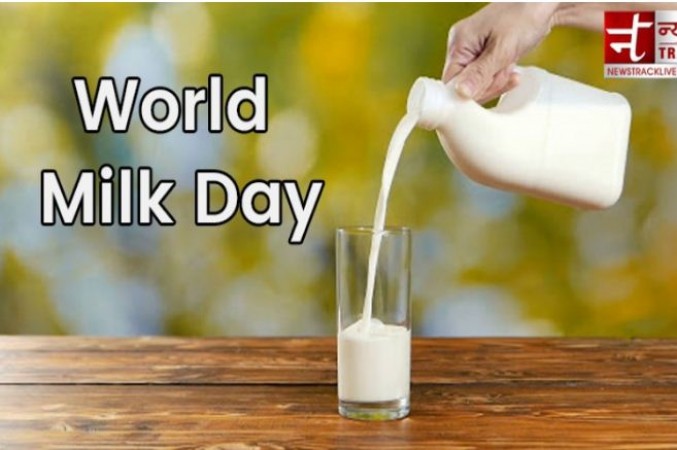
World Milk Day, celebrated on June 1st each year, is an international event that highlights the importance of milk as a global food source and recognizes the significant contributions of the dairy industry. Established by the Food and Agriculture Organization (FAO) of the United Nations, World Milk Day serves as a platform to promote the nutritional value of milk and dairy products, encourage consumption, and raise awareness about the sustainability and economic significance of the dairy sector.
History and Significance of World Milk Day: The idea of celebrating World Milk Day was first proposed by the FAO during the World Milk Conference held in 2001. The objective was to acknowledge the contributions of milk and dairy products to human health and nutrition, as well as to emphasize the economic importance of the dairy industry worldwide. In 2001, the first World Milk Day was celebrated, and it has since grown into a global event observed by numerous countries across the world.
Nutritional Value of Milk and Dairy Products: Milk is considered a complete and natural food, providing a rich source of essential nutrients necessary for a healthy diet. It contains high-quality proteins, vitamins (including A, B, D, and E), minerals (such as calcium, potassium, and phosphorus), and carbohydrates. These nutrients play a vital role in promoting bone health, supporting growth and development, maintaining a strong immune system, and reducing the risk of chronic diseases, including osteoporosis, hypertension, and type 2 diabetes. Dairy products derived from milk, such as cheese, yogurt, and butter, also offer a wide range of nutrients and contribute to a balanced diet.
The Dairy Industry and Sustainability: Beyond its nutritional value, the dairy industry plays a crucial role in global food security, poverty reduction, and rural livelihoods. Dairy farming provides income and employment opportunities for millions of people worldwide, particularly in rural areas. Moreover, the sector contributes to the economic growth of many countries, fostering agricultural development and trade.
Furthermore, the dairy industry has been making efforts to enhance its sustainability. Sustainable dairy practices involve responsible resource management, animal welfare, and reducing the environmental footprint of milk production. Many dairy farmers are implementing innovative technologies and practices to minimize greenhouse gas emissions, optimize water usage, and promote biodiversity conservation. Sustainable dairy production ensures the long-term viability of the sector while mitigating its impact on the environment.
World Milk Day is celebrated globally with various activities and events that aim to raise awareness about the nutritional benefits of milk and dairy products. Dairy companies, agricultural organizations, nutritionists, and health professionals collaborate to organize educational programs, workshops, and public campaigns highlighting the significance of milk in achieving a healthy and balanced diet.
These initiatives often involve schools, communities, and social media platforms to reach a wide audience and promote the consumption of milk. Cooking demonstrations, tasting sessions, and interactive sessions on dairy farming are organized to engage people of all ages. Additionally, milk donation drives are often held to provide dairy products to vulnerable populations, contributing to their nutritional well-being.
World Milk Day, celebrated on June 1st, is a global event that recognizes the importance of milk and dairy products in promoting human health, nutrition, and sustainable development. It serves as a platform to raise awareness about the nutritional value of milk, the economic significance of the dairy industry, and the efforts undertaken to ensure sustainability. By celebrating World Milk Day, we can highlight the importance of milk as a vital food source and encourage the consumption of dairy products for a healthy and balanced diet.